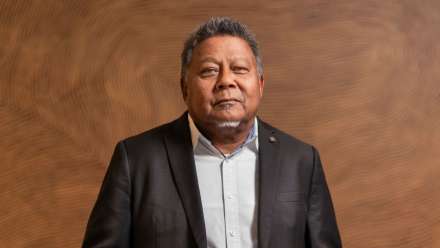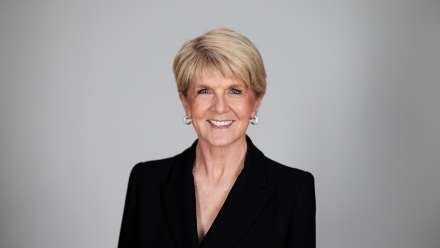Satisfaction with democracy on the decline
Australians' satisfaction with democracy remains high, but has declined over the last two decades, new research from The Australian National University (ANU) shows.
The findings, released as part of the 2023 ANU Crawford Leadership Forum, show 77.4 per cent of Australians say they are satisfied or very satisfied with democracy compared to 81 per cent in 2008.
Study co-author Professor Nicholas Biddle said that the biggest change was fewer Australians being 'very satisfied' with democracy than 15 years ago - 14.2 per cent compared to 23.4 per cent.
"Just over one-in-10 Australians said they were very satisfied with democracy compared to just under one-quarter in March 2008 when we asked the same question," Professor Biddle said.
"However, in 2023 more Australians said they were 'fairly satisfied' with democracy, 62.8 per cent, compared to 2008, when 58 per cent of us voiced the same opinion.
"And the number of Australians who said they weren't satisfied with democracy 'at all' has marginally declined as well - from four per cent in 2008 to 3.1 per cent in 2023.
"What this shows is that while Australians' overall satisfaction with democracy has dropped, our democracy remains strong and well supported. However, what this data shows is that we should not take this for granted."
The study shows that people born in Australia were least satisfied with democracy, with 75.2 per cent reporting that they were fairly or very satisfied, compared to 81.6 per cent of those born overseas in an English-speaking country and 80.8 per cent of those born in a non-English speaking country.
Education was the clearest predictor of a person's satisfaction with democracy. For those who had not completed Year 12, satisfaction with democracy was quite low, with only 67.5 per cent fairly or very satisfied.
By comparison, Australians with university degrees were more satisfied with democracy - with 84.0 per cent of those with an undergraduate degree reporting they were satisfied or very satisfied and 82.3 per cent of those with a postgraduate degree doing the same.
According to Professor Biddle, many Australians who haven't had the opportunity to complete school and post-school qualifications see themselves as having relatively low status in Australian society.
"This appears to explain some of the gap in satisfaction with democracy between those with high and low levels of education," he said.
Fewer Australians are satisfied with democracy compared to other voters across the Asia Pacific, the study also found.
More than 90 per cent of people in Vietnam said they were satisfied with democracy, and 87.2 per cent of Cambodians said the same. The third highest-ranking country was Taiwan, where 78.3 per cent of people say they are satisfied with democracy. Australia, with 77.4 per cent, ranks fourth in the sample of countries across the region.
"Although citizens across the region are strongly supportive of the broad concept of democracy, residents in Australia and Taiwan were by far and away the most likely to reject anti-democratic alternatives," Professor Biddle said.
"For example, 39.1 per cent of Australians 'strongly agree' democracy is the best form of government, with a further 52.7 per cent agreeing."
Study co-author Professor Matthew Gray said: "There is some evidence that support for populist and anti-democratic attitudes in Australia is on the decline, with fewer Australians supporting strong leaders, one political party and rule by the military compared to five years ago."
Another key finding was that Australians' confidence in government continues to decline, especially when compared to the height of the COVID-19 pandemic.
Between January and April 2023, confidence declined from 51.2 per cent to 48.3 per cent, and it declined again from April to August 2023 to 43.6 per cent.
"This is something which we as a society should be concerned about and reflects a longer-term change that is consistent with the experience in many other countries," Professor Gray said.
The study's findings are drawn from ANUpoll, the ANU Australian Election Study and the Asian Barometer Survey and are published in full online.
The 2023 ANU Crawford Leadership Forum examines democratic resilience and renewal in the 21st century.


